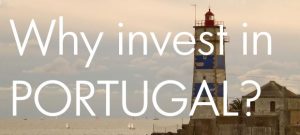I – Entry requirements
Entry into Portugal by foreign citizens who are nationals of third states is decided on based on the reason for their visit and the amount of time that they stay. For short stays, foreign citizens must meet the requirements of the Schengen rules. For long stays of more than three months, the requirements of Portuguese legislation in force must be met.
If you intend to visit Portugal for the purpose of tourism, and you are a national of a country subject to a visa requirementfor entry into the Schengen area, you must request a Schengen visa prior to your trip from an embassy or consulate in the area where you live, or from the embassy of a Schengen country representing Portugal for this purpose.
Aside from tourism, the Schengen visa also allows entry to Portugal for foreign citizens travelling on business or for professional, family, scientific, cultural, sporting, political or religious reasons.
All foreign citizens intending to remain in Portugal for a period of up to one year, or to establish their residence for more than one year, must request the respective long-stay visa – Temporary Stay or Residence – from the Portuguese embassy in their country of residence or from the Portuguese embassy with jurisdiction over their country of residence.
Visas may be requested for the following purposes: investment, work (employed or independent), study, professional training, research, highly skilled work or teaching, religious training and medical recovery and treatment.
All nationals of European Union Member States, States that are part of the European Economic Area (EEA), states with which the European Community have free travel agreements and nationals of third States who are family members of a Portuguese citizen or family members of EU or EEA citizens are excluded from long- stay visa procedures. The only requirements for these applicants is that they have to hold a Schengen visa, if applicable, upon arrival in Portugal and must register with the Foreigners and Borders Service in their area of residence.
II – Residency requirements
If you are a national of a European Union country, Iceland, Liechtenstein, Norway or Switzerland and you remain in Portugal for a period of more than three months, you must request a Registration Certificate (Certificado de Registo) from the City Council of your area of residence. This document formalises your right to reside in Portugal.
After you have held a registration certificate for five consecutive years, you may request a Permanent Residence Certificate (Certificado de Residência Permanente) from the Foreigners and Borders Service (Serviço de Estrageiros e Fronteiras). Contact the Foreigners and Borders Service for more details about the requirements necessary for making this request.
If you are a citizen of a third state (all other situations), and you wish to become resident in Portugal, you must hold a residency visa that is suitable for the purpose of your stay. This visa allows you to enter Portuguese territory for the purpose of requesting a residence permit from the Foreigners and Borders Service.
Notwithstanding any special legal provisions that may apply, the temporary residence permit is valid for a period of one year from the date on which the document is issued. It may be renewed for successive two year periods. After five years of temporary residence, holders of this document may request a permanent residency permit.
Please note that you must make an appointment before going to one of the offices of the Foreigners and Borders Service, either over the phone or through its website.
III – Golden residence permit programme
New legal provisions open up the possibility of applying for a residence permit for pursuing investment activities to those who have entered the country regularly (v.g. holders of valid Schengen Visas, or beneficiaries of Visa exemption), by transferring capital, creating jobs or acquiring real estate.
The holders of Golden Residence Permits for Investment Activity have the right to family regrouping, and may gain access to a permanent residence permit, as well as to Portuguese citizenship in accordance to the current legal provisions.
Who can request a residence permit for investment activities?
Third country nationals who either carry out investment activities personally or through a company that lead to, as a rule, at least one of the following situations in Portuguese territory for a minimum period of five years:
The acquisition of real estate with a value of 500 thousand Euros or more
Transfer of capital worth 1 million Euros or more (including investments in company stocks or shares)
The creation of at least 10 jobs
How should a request to acquire real estate be filled in?
By demonstrating full ownership of real estate through the presentation of property transfer deed or a property purchase undertaking. These documents should include a declaration from a financial institution, authorised to carry out activities in Portuguese territory, stating that a transfer of 500 thousand Euros or more has effectively been made for its acquisition, or as a signal of a purchase undertaking and by submitting an up-to-date certificate from the property register, which, in the case of a promissory contract, provided that it is legally viable, should always include the respective entry.
Property may:
be acquired under a co-ownership scheme, provided that each co- owner invests 500 thousand Euros or more, or through a promissory sale-purchase agreement indicating an amount of 500 thousand Euros or more; the respective transfer deed should be submitted before requesting the renewal of the residency permit for investors;
be encumbered starting from a threshold in excess of 500 thousand Euros;
be leased and exploited for commercial, agricultural or tourism purposes.
How can I request a residence permit for investment activities?
You can make a request online at www.sef.pt. Requests can also be made at Portuguese diplomatic posts and consulates overseas, or at the central or regional offices of the foreigners and borders service.
Family Reunification
The holders of Golden Residence Permits for Investment Activity have the right to family regrouping, and may gain access to a permanent residence permit, as well as to Portuguese citizenship in accordance to the current legal provisions.
Minimum permanent residency periods
For the purposes of renewing a residency permit, you may have to show that you have resided in Portuguese territory for a minimum period of 7 days, either consecutively or non-consecutively, during the first year, and 14 days in subsequent two year periods.
IV – Wealth taxes
Before moving on, you should know that the concept of property used in Portugal is “full ownership”, which is based on the full and exclusive right to use, enjoy and have immovable property at your disposal. This right gives the Portuguese property system an important competitive advantage.
In the area of tax law, you should keep in mind the relevant information about taxes, rates and benefits applicable to wealth.
The Municipal Tax on the Transfer of Property for a Valuable Consideration and Stamp Duty is charged on the acquisition of property.
What is the Municipal Tax on the Transfer of Property for a Valuable Consideration?
It is a tax charged on the transfer, for a valuable consideration, of property rights over immovable property or parts of this right (use and habitation, surface rights, usufruct, among others).
What is this tax applied to?
It is applied to the value of the purchase contract or to the taxable value of the property, whichever is greater.
The tax is the result of the application of variable rates which, in the case of property exclusively for residential use, can vary between 0 and 6%. Property located in the Autonomous Regions of the Azores and Madeira benefits from reduced rates.
What is Stamp Duty?
It is a tax applied to all acts, contacts, documents, deeds, papers and other legal factors or situations, including the transfer of goods free of charge. In the case of property purchases, it is applied to the value of the purchase contract, or to the taxable value of the property, whichever is greater. It is the result of the application of a 0.8% rate.
What is Taxable Value?
It is the value registered in the property register on the date of sale. In this register appears the description of the property, its location, its taxable value and the identity of its owners. Registers are updated annually on December 31.
Who is responsible for paying the taxes and when should these taxes be paid?
The interested party purchasing the property.
The taxes should be paid before the property purchase document is signed. If the transfer of ownership occurs overseas, the tax must be paid during the following month.
They can be paid by visiting any Finance Service Office, through the Finance Website or at a Casa Pronta service desk.
V – Income taxes
The IRS is a tax on all earnings, in cash or in kind, wherever they are obtained and regardless of the currency and form in which they are paid.
Income is split up into the following categories for the purposes of this tax:
Category A – Income from employment
Category B – Income from professional, commercial, industrial, agricultural, forestry and animal raising activities
Category E – Capital income Category F – Real estate income Category G – Capital gains and other and other asset increases Category H – Pensions
Individuals who fall into the following groups are subject to Personal Income Tax:
Those residing in Portuguese territory – in this case the IRS is payable on all earnings, including those obtained outside this territory; Those not residing in Portuguese territory, but who obtain income from there – in this case the IRS is only payable on income obtained in Portuguese territory.
In the case of a family group, the tax is payable on all income earned by all members of the family; all of the following people to whom the tax applies at your address are responsible for its payment: spouses, people living in an unmarried partnership, single people, widows, divorced people, legally separated people, married people who are separated.
What are the criteria used to determine residency in Portuguese territory?
The following specific people are considered to be resident in Portuguese territory in any given tax year:
Those who have been in the territory for more than 183 days, continuously or with interruptions; On the 31st of December of any given year, those who have been in the territory for less time, but their living arrangements suggest that they intend to remain and occupy them as a normal residence;
When a person is considered resident in Portuguese territory, anyone living at the address of the family group, and forming part thereof, is also considered to be resident.
In any given year, anyone meeting the requirements to be considered as a resident may request registration as a non- habitual resident, provided that they have not been resident in Portuguese territory during any of the five previous years.
What is the tax rate?
For taxpayers resident in Portugal, income subject to IRS is taxed by the application of progressive rates, in accordance with the taxable income of the family group, calculated based on the income declaration presented annually by taxpayers. In 2013, the rate varies between 14.50% and 48%.
- However, autonomous taxes or voluntary retention at source apply to some Some examples of income subject to these are shown below:
– Interest and income from property assets: 28%
– Real estate income: 28%
For non-resident taxpayers, the rates that apply to income obtained in Portugal vary depending on the nature of the income. Some examples are shown below:
- Income from employment (Cat. A): 25%
- Income from professional and business activities (Cat. B): 25%
- Pensions (Cat. H): 25%
For people registered as non- habitual residents, the method for the exemption of overseas income in categories A, B, E, F, G and H may be applied to the elimination of international double taxation, under the specific conditions set out in the Tax Code on Personal Income (CIRS).
This information is not intended to be a substitute for consulting the applicable legislation. Please contact us.




